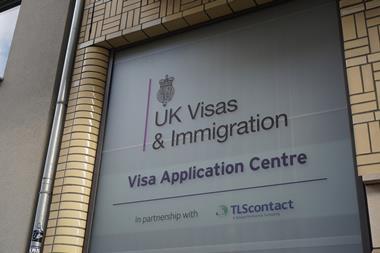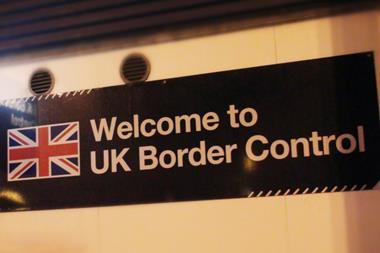On top of the financial expense, applications and renewals are slowing scientific progress and damaging researcher mental health

Studying or working abroad is often cited as an important experience for early-career researchers. But this mobility is easier for some people to access than others. There are various barriers such as financial costs, family ties and health requirements that can make it harder to move. And then there is a final hurdle: getting a visa.
Even when it’s government policy to attract scientific talent to a country, visa requirements can still hinder its implementation. Take the UK, which has launched a global talent drive to attract ‘world-class researchers and their teams’. However, the visa system such researchers will have to grapple with is complex and still one of the most expensive in the world, undoubtedly deterring many talented but less wealthy individuals.
Cost isn’t the only barrier. A requirement to register biometric data ahead of receiving a UK visa is preventing 40 students from Gaza from taking up the full scholarships they’ve been awarded to study at a variety of UK universities. They’ve met stringent academic requirements while being forced from their homes and living through bombings and food shortages. Yet they can’t take up their offers because there’s no longer a biometrics registration centre in Gaza.
Renewing a visa also costs international researchers money and time, and can affect their mental health. Results of a survey of over 700 international postdocs at Harvard Medical School in the US, recently shared in a preprint on bioRxiv, reveal the challenges they face to extend their stay – a process that some must do every one or two years.
US visas must be renewed in the individual’s home country. Over 40% of the surveyed postdocs have had to spend more than a month outside of the US to renew their visa, away from their lab and research group, with all the disruption that causes to their research progress. The average cost of renewal was $1000 (£750).
On top of this, the stress of visa renewal means at least 75% of respondents report experiencing mental health challenges (just 3% said their mental health was fine – the rest chose not to answer the question). And this survey was carried out between January and March 2024 – before the detentions and deportations that have become prevalent under President Donald Trump and which have led some universities to recommend that their international staff and students avoid travelling abroad unless necessary.
Funders and universities must continue to lobby governments when immigration policies unnecessarily hinder the movement of researchers and hold back scientific progress. But change is unlikely to come soon – especially as the effects that count most at a political level, such as slower economic growth, are long-term and difficult to quantify. However, we can all proactively support our colleagues and students who face additional visa burdens – whether that’s through practical help, like granting extra time off to handle bureaucracy or by helping to plan research around a period of visa-related absence, or by simply listening as they vent their frustrations.

















No comments yet